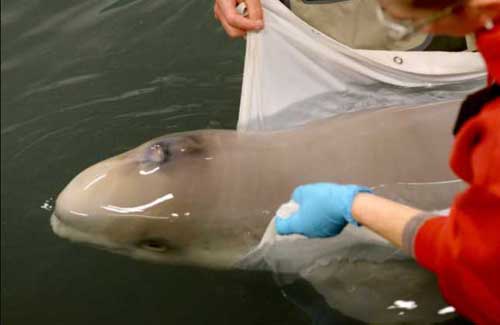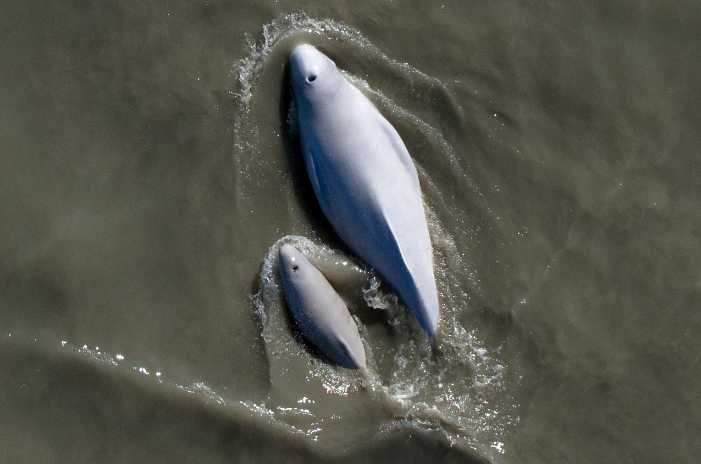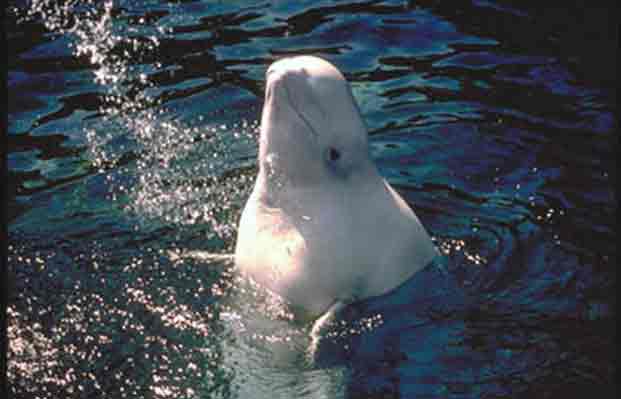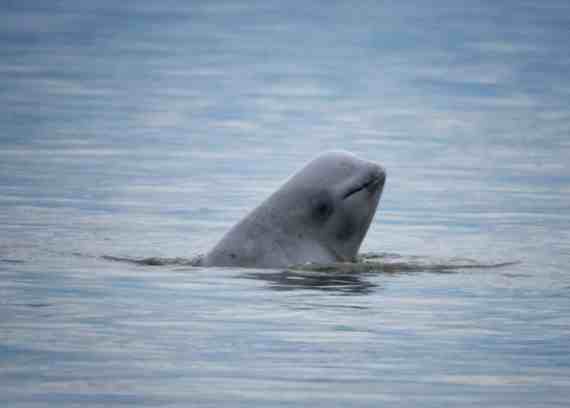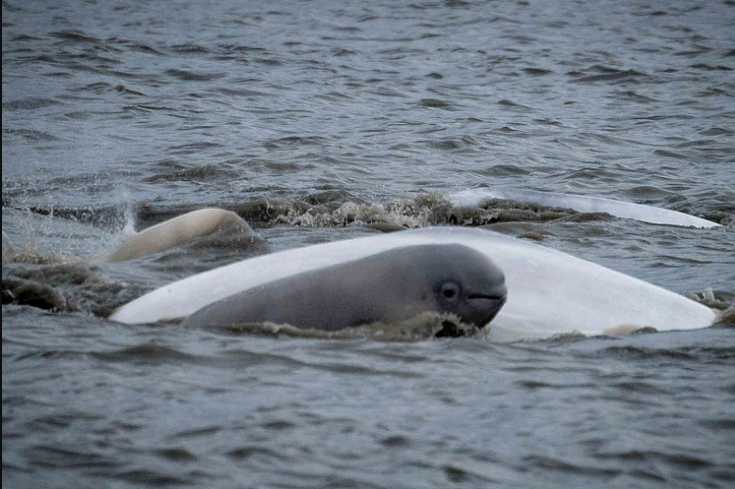Whale Population Plummeting in Project Area, New Federal Data Show
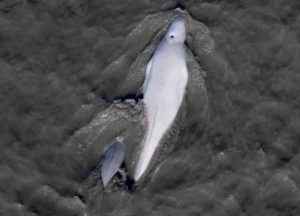
ANCHORAGE, Alaska— Conservation groups Friday threatened to sue the Trump administration for approving oil exploration in Alaska’s Cook Inlet after new federal data found a dramatic decline in the area’s population of endangered beluga whales.
The formal notice of intent to file an Endangered Species Act lawsuit asks the National Marine Fisheries Service to revoke its authorization of oil and gas activities in the area until a new legally required consultation is completed.
The administration relied on higher beluga whale numbers when, in 2019, it approved rules allowing Hilcorp Alaska LLC to harm belugas and other marine mammals as it expands offshore oil and gas operations in Cook Inlet. But on Tuesday the Fisheries Service announced the population of whales was estimated at 279, a significantly smaller and more quickly declining population than the agency had thought.
“Since we pressed for listing the Cook Inlet Beluga whale as endangered in 2008, the drive for corporate profits and complacent government bureaucrats have conspired to stifle progress for this dwindling stock,” said Bob Shavelson, advocacy director for Cook Inletkeeper. “Hilcorp should do the right thing and abandon its plans for new drilling in Cook Inlet.”
Today’s notice says the Trump administration must consider the new population information before deciding whether Hilcorp’s offshore oil and gas activities can continue. To do otherwise poses an unacceptable threat to critically endangered beluga whales and violates the Endangered Species Act.
“The tragic decline of these lovely little whales spotlights the risk of allowing oil exploration in their habitat,” said Julie Teel Simmonds, an attorney at the Center for Biological Diversity. “If we’re going to save these belugas, the Trump administration must cancel permission for the oil industry to use seismic blasting and pile driving in Cook Inlet. These animals are hanging on by a thread, and we can’t let them be hurt even more.”
[content id=”79272″]
In September 2019 Cook Inletkeeper and the Center for Biological Diversity sued the Fisheries Service in U.S. District Court in Alaska to block the “take authorization” rule it had issued in July. The authorization would allow harm to marine mammals from Hilcorp’s seismic blasting, pile driving and other offshore-oil development activities over the next five years.
Hilcorp bought 14 new federal leases in Cook Inlet in 2017, shortly after failing to control an underwater gas leak from its pipeline there for nearly four months. The Texas-based company has repeatedly been fined for safety violations by Alaska regulators, who wrote that “disregard for regulatory compliance is endemic to Hilcorp’s approach to its Alaska operations.”
Hilcorp has been aggressively expanding its oil operations in Alaska, and it is now working to buy all of BP’s fossil fuel interests in Alaska for $5.6 billion. Hilcorp Alaska is also seeking to construct the Liberty project, an offshore drilling island in the Beaufort Sea, but the Center and other groups filed a lawsuit in December 2018 challenging approval of that project.
Seismic blasting used in oil and gas exploration can reach 250 decibels and be heard for miles. It can cause hearing loss in marine mammals, disturb essential behaviors such as feeding and breeding, mask communications between individual whales and reduce catch rates of commercial fish.
Friday’s notice letter starts a 60-day clock, after which the Center and Cook Inletkeeper can sue to compel the Fisheries Service to comply with the Endangered Species Act.
The Center for Biological Diversity is a national, nonprofit conservation organization with more than 1.7 million members and online activists dedicated to the protection of endangered species and wild places.
Cook Inletkeeper is a community-based nonprofit organization formed by concerned Alaskans in 1995 to protect the Cook Inlet watershed and the life it sustains.

